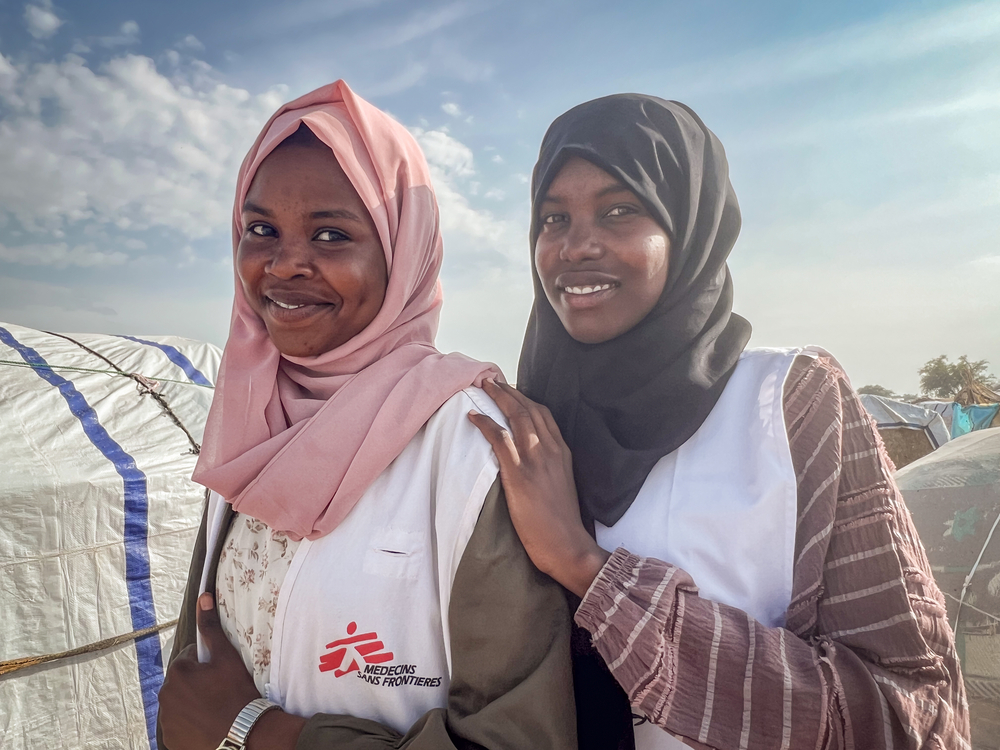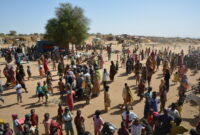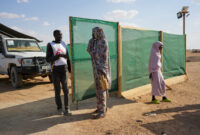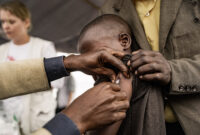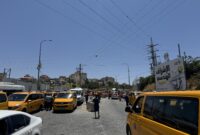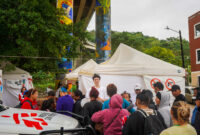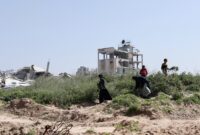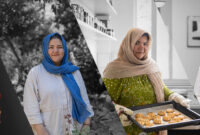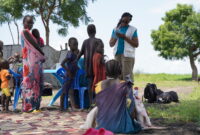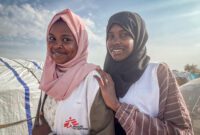Adré, Chad: Chaos lives in a place like this
Chaos lives here, in the transit refugee camp of Adré, Chad. We are barely 5 kilometers away from Sudan, where war has been raging since mid-April 2023. Chad has opened its doors to almost half a million displaced people as a result of the horrific violence. The landscape of the transit camp is dynamic, with hundreds of families still crossing the border from Sudan and settling here every day. At the same time, large groups leave the site to be resettled in official camps further from the border.
I spent a few days in the clinic that Doctors Without Borders/Médecins Sans Frontières (MSF) opened in the camp. It stands in the middle of an ocean of tents made of branches and pieces of plastic sheeting. As a humanitarian affairs officer for MSF, part of my job is to collect testimonies, in line with the organization’s commitment to go beyond its medical mission and to also speak out, bear witness, and draw attention to the issues that drive emergency needs.
As I was hoping to find some patients who would be willing to share their stories with me, two young women walked up to me with impressive composure and greeted me in English. They were wearing the MSF dossard: colleagues. They are from Sudan, refugees themselves. Stunned by their enthusiasm to engage, I asked if they would consent to provide a recorded testimony of their experience working in the camp.
In the camp, population density is high, sanitation is far from adequate and the living conditions fall short of any acceptable standards. There is a gulf between what humanitarian organizations can provide and what is needed, due to limited funding and resources, and displaced families bear a high cost for the international community’s delayed reaction. Working in the camp as community health promoters for MSF, Sijood and Rehab see first-hand the living conditions of refugees:
‘People need food the most. Some people are so poor that they have to eat the grass they find. They need safety and a healthy life. They need access to water, because water is what will help them get a healthy life’.
Refugees here survive in conditions that, I suspect, are nowhere near what most individuals reading these lines would consider tolerable. With humanitarian organizations unable to scale up and respond to needs in a timely manner, families have little choice but to pray for the next food distribution and stand in endless queues to fill a jerrycan with water. Given the unprecedented health risks faced by displaced people living in camps, health promotion is a key aspect of MSF’s programmes in places like Adré:
‘We raise awareness on the symptoms of diseases such as malaria and malnutrition and promote good hygiene practices to prevent the spread of diseases. We also address sexual violence and refer patients to the MSF clinic to access the treatment they need.’
Newly arrived refugees often don’t know what services are available to them, and health promoters like Sijood and Rehab help spread the word about MSF’s services. To prevent health deterioration, they refer people who show clear signs of illness to the MSF clinic, where they can receive appropriate care from our medical teams.
As I hung on to their words, I was struck by a thought that I could hardly ignore. How do these two young women manage to carry out this vital work with such bravery and grace, after having to escape the deadly conflict in Sudan? In which pit are they both digging for their courage and willpower? As they seemed comfortable opening up, I asked more about their journey fleeing the war.
‘We lost everything. We lost our people, our brothers, sisters, we lost our money. We lost our country.’
‘My eyes have seen very bad things. They killed people without hesitation. They raped women. If they find a group of 20 men, they will kill all of them. If they find a group of 10 women, they will rape all of them. If you resist the rape, they will kill you with no hesitation. They even killed children. I’ve seen this with my eyes.’

Accounts like these are not rare in Adré. Systemic killings and rape have taken place in front of people’s eyes, too often of their own relatives. Here, the nasty absurdities of war are laid out in plain sight: two sides are vying for power in Sudan, and the result is millions of shattered innocent lives, separated families and a full-blown humanitarian catastrophe.
Rare are those like Sijood and Rehab who found a job on the Chadian side, however, many find ways to earn a few dollars. It’s not that easy, as there is so little economic opportunity. Most of the half a million displaced people therefore rely on coping mechanisms, temporary survival strategies and insufficient humanitarian aid.
When you find yourself here, what else are you left with anyways? What other options do you truly have in a place like Adré transit camp?
Do you take the leap, leave the camp, and start a new life where peace and opportunity might be found? But the full dive requires money and strength, neither of which you have at the moment. You are poor and exhausted.
Do you stay here and accept the fate of life in the camp? But here, it rains inside your shelter and there is no school for your children.
Do you return to Sudan, the beloved country you lost? Sounds great, but you left so many dead relatives there, and making it back without losing another family member would be nothing short of a miracle.
Chaos lives in a place like this. It lives in the shame that consumes a mother whose only option to keep her children from starving is to feed them insects and grass. It lives in an orphan’s painful truth of having to find ways to survive all while dealing with the trauma of war. It lives in the nothingness faced by a young man stuck with multiple bullets in his legs, confined to his tent all day, completely unable to move. It lives right here, in the absurdity of all those places called ‘transit’ camps, filled with individuals who are acutely aware that temporary may last for most of their lives.

But people like Sijood and Rehab serve as reminders that solidarity exists here too. With unfathomable courage, these two young women have taken it upon themselves to lift others up in times of hardship. They remind us that when humanity is faced with such calamities, what remains is the support we can give each other.
‘By the will of God, I will keep going. I wish the community here a better life than this. To find a safe place, to find what they need to make their lives better than now.’
But the local support and solidarity must be matched internationally. Like Sijood and Rehab, all those who can must step into their duty, now. With enough assistance to bring humanitarian aid and meet people’s basic needs, life can be immeasurably eased for hundreds of thousands of refugees in eastern Chad. And that is unquestionably the very least they deserve.
Annie Thibault
Humanitarian Affairs Officer
MSF Suisse, Chad
